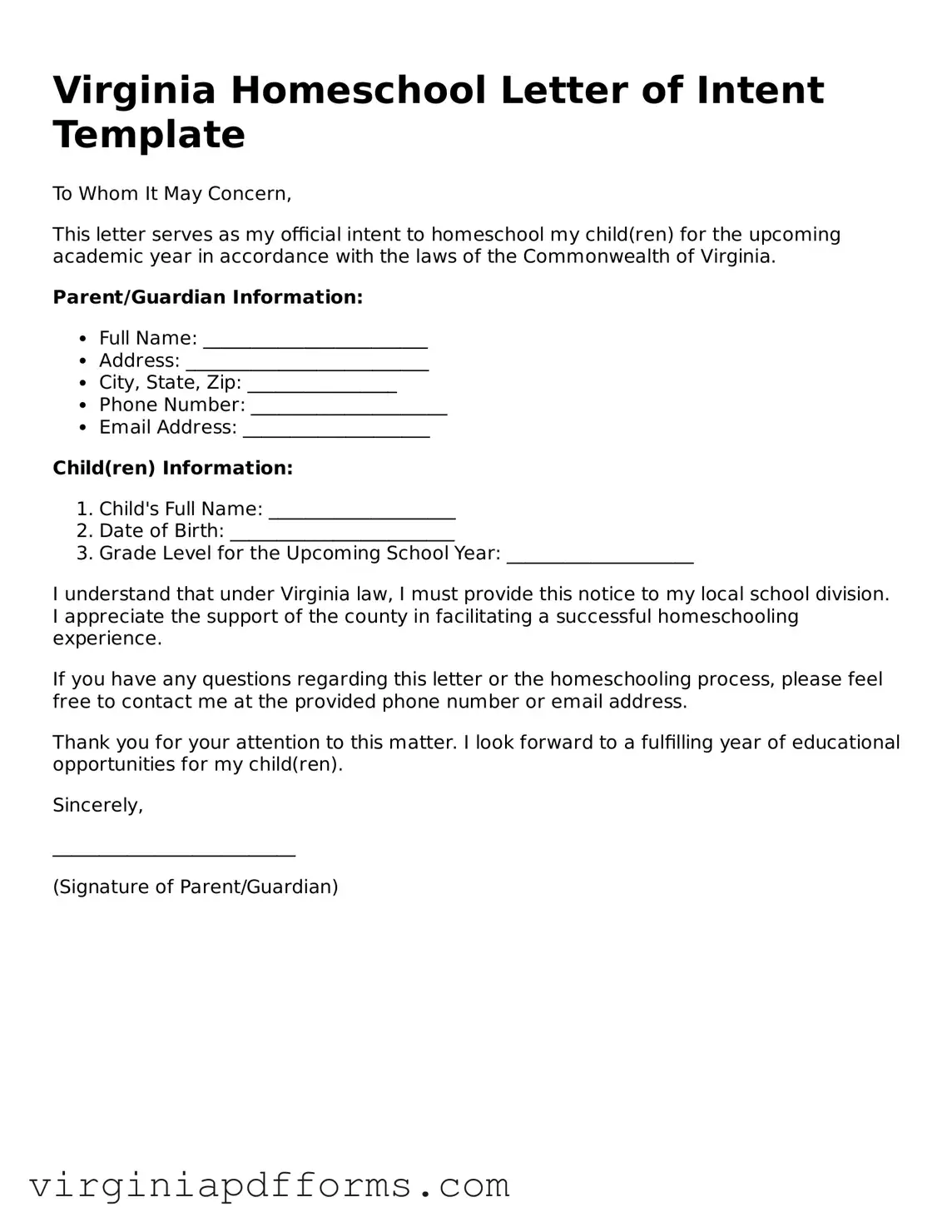Attorney-Approved Virginia Homeschool Letter of Intent Document
The Virginia Homeschool Letter of Intent form is a crucial document that parents must submit to officially notify their local school district of their decision to homeschool their children. This form outlines the intent to provide an educational experience outside of traditional public or private schools. Completing this form is the first step in ensuring compliance with Virginia's homeschooling regulations.
Access My Document Now

Attorney-Approved Virginia Homeschool Letter of Intent Document
Access My Document Now

Access My Document Now
or
Free Homeschool Letter of Intent File
Need this form wrapped up fast?
Finish Homeschool Letter of Intent online — edit, save, download without effort.